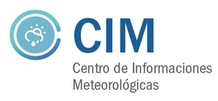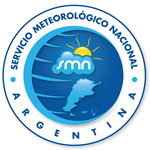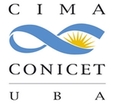Alternative flash content
Requirements
Welcome
The Center of Studies on Climate Variability and Change (CEVARCAM) is a research group that operates within the Faculty of Engineering and Water Sciences (FICH), National University of Litoral (UNL) and is part of a comprehensive process of extension and integration between the University and people. This center was developed thinking in the region, community, and their socio-economic activities, with the firm decision to provide planners, decision makers and other stakeholders with tools to reduce the vulnerability of the community and make progress to sustainable development in the region.
Vision
CEVARCAM aspires to have a national and international recognition as a corollary of its actions towards excellence in scientific research and continuous improvement of its services. The center promotes the generation of knowledge and services on climate variability and change, real-time forecasting, nowcasting, monitoring, radar information, among others, with emphasis on the argentinian Litoral region.
Mission
CEVARCAM encourages research, training and collaboration in the following themes of interest:
1. Hydro-Climate Variability and Change: The purpose of this research is to expand the knowledge of hydrological variability in the context of climate variability over La Plata Basin, with the aim to provide useful information to hydrologists, decision makers and planners, about the evolution of water resources in the context of the climate variability and change.
2. Weather Forecast: The main objective is the development of nowcasting, forecasting and monitoring of hydrometeorological variables, based on data from weather radars, gauge stations, numerical models, among others. Of particular interest is the study of occurrence of extreme water in the region, including the development of useful applications for hydrology and agriculture. In order for that CEVARCAM has an access terminal to the Meteorological Radar Network from INTA; an agreement with the National Weather Service (SMN), a high performance cluster for weather simulations of numerical models and access to various databases and specific tools.
3. Interactions in the Climate System: The objective of this research is to contribute to the knowledge of the relationship aquifer-atmosphere to prevent environmental degradation and to alert the community about the need to optimize resource management, depending on the aquifer response. Also, it is of particular interest to study the land-atmosphere interaction, in order to understand the effects of land use changes and variability of vegetation on regional climate.
![]()












